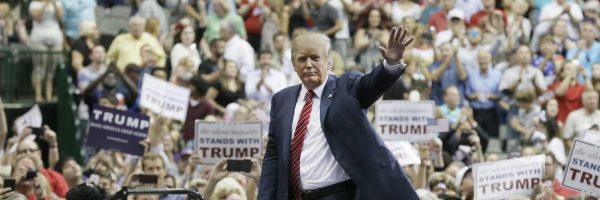Harvard: CEOs Need To Prioritize Diversity

For the naysayer, the urgent precedent of diversity can often feel like forced righteousness. But the distinct reality behind diversity, as we now know from numerous studies and real-life examples, is that it’s beneficial for business. And CEOs in particular need to take notice.
A recent in-depth report from Harvard Business Review revealed the necessity loud-and-clear: in a modern world where “Women make up half the U.S. workforce, drive 80 percent of consumer buying decisions and represent 60 percent of global university graduates,” ignoring its importance isn’t just arrogant—its potentially destructive for companies.
Speaking directly to CEOs, HBR writer Avivah Wittenberg-Cox illuminates three crucial F’s: Facts, Feelings and Framework.
Regarding facts, Wittenberg-Cox notes, “When it comes to gender balance, a lot of people don’t get it, don’t like it, or, frankly, resist it. That’s why you as the CEO need to be well versed at explaining why you think gender balance in your organization is so important.”
In combating the dilemma, she first proposes a list of questions for CEOs. “How (im)balanced is your company? Do you have a recruitment, retention or promotion issue? Is it all three? Do you even know? Are men and women split by level, role, function? What’s the gender split of your customers, users or purchasing decision makers? What about regulators, government contacts, etc.?”
On promotional issues specifically, Wittenberg-Cox highlights the stark differences between how men and women typically move up in companies. Namely, the difference between the “Peter” (men) and “Paula” (women) principles.
“Men typically experience the Peter principle, meaning they are promoted to their level of incompetence, whereas women often experience the Paula principle, meaning they are underpromoted across the board. This is creating situations where many multinationals are skewing female at the bottom without ever affecting the balance at the top, to their great frustration.”
On feelings, she also notes that, again, it’s not enough simply hire women—rather a CEO needs to set a positive tone, focus on inclusion and “always insist on meritocracy.”
And finally, when dealing with the framework of promoting diversity, she writes, “context is everything. Make gender balance a lever to achieving business goals. Period.”
You can read the entire piece from Wittenberg-Cox here, and check out her previously published book Seven Steps to Leading a Gender-Balanced Business today.
Startup Lessons: Campus Doorman

The path for startups can be treacherous. In the series “Startup Lessons,” we examine new MBA startups at the ground level to understand how they succeed.
Fox Temple Earns Top 10 In Princeton Review, Entrepreneur Magazine

Among Philadelphia’s ever-growing list of exceptional business schools, the Fox School of Business at Temple University has earned the right to stand out.
In the 2017 list of the nation’s best entrepreneurship MBA programs for undergraduates and graduates from the Princeton Review and Entrepreneur Magazine, Fox Temple was the only school in the city to earn both honors—earning its way into the top 10 for each list.
This is the second year in a row Fox Temple managed to secure rankings on each list, coming in at 8th overall for its undergraduate program and 9th for its graduate program—one spot higher than last year.
“It’s rewarding to see our entrepreneurship programs recognized nationally, and in the company of prestigious schools,” said dean M. Moshe Porat shortly after the rankings were announced in mid-November. “Entrepreneurship education is a pillar across Temple University, and we at the Fox School are proud to lead this charge. More and more resources have been made available to students from all 17 schools and colleges at Temple. Our mission is to prepare and encourage students to think and act like entrepreneurs, no matter where their careers guide them.”
Topping this year’s list, unsurprisingly, was Harvard Business School, followed shortly after by the F.W. Olin Graduate School of Business at Babson College, the Jesse H. Jones Graduate School of Business at Rice University, the Kellogg School of Management at Northwestern and Booth School of Business at the University of Chicago to round out the top five.
The list was compiled after examining surveys from over 300 schools between May and August of 2016. The final tabulation considered academics and requirements, students and faculty, alumni entrepreneurship ventures, how students worked outside of the traditional classroom setting, school competitions and scholarships/aid.
The news of Fox Temple’s newest honor follows a successful string of accolades through various other authorities, including the Financial Times, which named the school’s Executive MBA program as the 18th best in the U.S. Check out some of Fox Temple’s other prestigious honors here.
The Answer To Trump’s Victory Is Behavior, According To Harvard

In the early days after the 2016 presidential election, one of the first reflections many are looking into is how polling data was so off the mark.
Trump vs. Clinton: What It Means to Business School Students

It may be U.S. citizens headed to the polls today, but another group is watching the outcome of the presidential election pitting Donald Trump against Hillary Clinton with much more than simply passing interest. Prospective international students thinking of studying in the United States could be significantly impacted by today’s outcome.
National Public Radio (NPR) last month reported on a survey—conducted by FPP EDU Media, a company that matches international students with international programs, and college marketing company International Education Advantage LLC (Intead)—that found that of more than 40,000 prospective students surveyed from 118 countries around the world, 60 percent said they were less likely to study in the United States if Trump is elected, compared to 3.8 percent who reported they would be less likely to choose a U.S. school if Clinton wins.
The survey didn’t ask why, but Intead CEO Ben Waxman told NPR that he suspects Trump’s positions on immigration—including a proposed ban on Muslims entering the country and a wall on the Mexican border that Mexico would pay for—were likely factors. In breaking out prospective students by individual country, the survey found that 80 percent of Mexican students said they would be less likely to study in the U.S. with Trump in the White House.
We should note that the FPP EDU Media/Intead survey included prospective students at both undergraduate and graduate levels and did not break responses out by level of study.
To get a sense of how many international students contemplate graduate management study in the United States, we turned to the Graduate Management Admission Council (GMAC). According to GMAC’s most recent Applicant Trends survey, the majority of applicants seeking admission to full-time two-year MBA programs for the incoming class of 2016-17 were international candidates, representing 52 percent of the applicant pool. Domestic candidates accounted for the remaining 48 percent. The percentage of international students who ultimately enroll at leading business schools is not quite that high, although at most schools they make up a solid third of the class or more. The University of Pennsylvania’s Wharton School this year welcomed 32 percent international students as part of its incoming class, Harvard Business School (HBS) and Kellogg School of Management each boast 35 percent international students and UC Berkeley’s Haas School of Business is at 38 percent.
So, how international applicants perceive study in the United States based on the results of this election could have significant impact on graduate management education as a whole as well as on individual MBA programs at some of the nation’s top schools.
Trump’s Potential Impact on Leading MBA Programs Limited, Hope Some
Rafael Rivera, a dual-degree candidate at HBS and the Harvard Kennedy School, says that if he were just now applying to business school, a Trump victory wouldn’t deter him from coming to the United States. “Even if Donald Trump wins, the U.S. has still a strong, vibrant economy, which has better prospects than other regions such as Europe or Latin America,” he tells Clear Admit. “Also, the best MBA programs are here. I don’t see why the quality of those programs would go down if Trump wins.”
That said, Rivera does have friends and colleagues in his home country of Mexico currently applying to MBA programs who have expressed disappointment about the American elections. “As you can imagine, Mexican citizens feel offended by the constant negative comments of the Republican candidate and his intentions to build a wall.”
HBS Poll Finds Hillary a Clear Favorite
A project Rivera and a fellow HBS classmate undertook earlier this fall underscores how much the U.S. election is in the minds and hearts of even those who can’t cast a ballot. Rivera, together with Jeremy Au, HBS Class of 2017, polled fellow HBS classmates in late September and early October for a pioneering election poll published in the Harbus student newspaper on Oct, 19th.
Rivera and Singapore-born Au are both foreign nationals, which means they cannot vote in tomorrow’s elections. “The idea came because we are both interested in politics (in our respective countries), and we are really interested in getting to know people’s opinion regarding public issues,” Rivera tells Clear Admit. “We hear a lot about polls around the U.S., but we really didn’t know what our classmates think about national issues,” he continues.
These motivations—as well as a poll run by undergrads for the Harvard Crimson—inspired them to run their own poll. “We didn’t have any particular agenda with this poll—we only had the curiosity to know the opinion of our classmates in such important days,” Rivera says. Between Sep. 19th and Oct. 3rd, 236 first-year HBS students were surveyed across multiple sections via in-class voting with privacy screens, and the data was weighted for nationality and gender.
What They Found Surprised Them
Rivera and Wu, in a Harbus piece later republished by the Huffington Post, revealed their findings: HBS students clearly favor Clinton. Clinton received 85 percent of the vote, compared to Trump’s 3 percent. Libertarian nominee Gary Johnson beat out Trump as well, garnering support from 10 percent of those polled. Green Party nominee Jill Stein brought up the rear, trailing just behind Trump with 2 percent of the vote.
“American and international students did not show a statistically significant difference in their preferences,” wrote Rivera and Wu. That said, international students were slightly more in favor of Clinton (88 percent) and even less in favor of Trump (1 percent) than their U.S. classmates (84 and 3 percent respectively). In fact, among international students, Trump trailed both third-party candidates as well, with Johnson getting 7 percent of the vote and Stein getting 4 percent.
Of course, these results are nothing like the incredibly close race suggested by the most recent polls of U.S. voters. As of this writing, Nate Silver’s FiveThirtyEight website shows a popular vote narrowly in Clinton’s favor, 48.8 percent compared to 45.1 for Trump, with Johnson claiming another 4.7 percent.
Rivera and Wu cite four key factors as contributing to Clinton’s lead among HBS students: Obama’s high approval rating among HBS students (88 percent) relative to U.S. voters (52 percent); more HBS students lean Democratic (53 percent) than U.S. voters (36 percent); more HBS Dems support Clinton (94 percent) than HBS Republicans support Trump (52 percent); and HBS independents fall overwhelmingly in Clinton’s camp (80 percent compared to 0 percent for Trump).
Wu and Rivera also note that HBS students are more socially liberal than U.S. voters—on issues ranging from stricter gun control to women’s rights. Where immigration is concerned, HBS students are three times more likely to support increased immigration (63 percent, compared with 21 percent of U.S. voters). On the issue of immigration, 68 percent of international HBS students favored increases, compared to 60 percent of their U.S. classmates.
Interestingly, on the question of whether the distribution of money and wealth in the United States today is fair, HBS student sentiment was almost identical to U.S. voters, with 62 and 63 percent respectively responding that it should be more evenly distributed among a larger percentage of the people. But in terms of how that redistribution might take place, HBS students were divided. Of U.S. HBS students, 38 percent were in favor of heavy taxes on the rich for wealth redistribution. More than half—53 percent—of international HBS students were in favor of higher taxes.
Rivera and Wu cite three factors they believe as potentially contributing to the overall poll results. “HBS students have higher levels of education, higher levels of household income and are younger than the general U.S. population,” they write as factor one. “Most HBS students have work experience in the private sector, and are thus more exposed to workplace issues, international markets and diverse work teams,” they cite as the second factor. “First-year HBS students have also undergone 2 months of daily interactions within 90-student sections, which are sorted for high diversity in nationalities, ethnicities, and experiences,” they offer as a third factor (the complete survey methodology and results can be viewed here).
Wharton Wary of Association with Trump
HBS was the only leading business school we found that had conducted its own election poll, but it is certainly not the only school where anti-Trump sentiment has been documented. Much earlier in the campaign, students at the University of Pennsylvania’s Wharton School sought publicly to distance themselves from the viewpoints of fellow Wharton graduate Trump (who completed two years of college at Wharton after transferring from Fordham and received his undergraduate degree from the school.Trump does not hold a Wharton MBA degree).
In an open letter in July published on Facebook, a contingent of Wharton students, alumni and faculty set out to make clear that Trump does not represent them. “We, proud students, alumni, and faculty of Wharton, are outraged that an affiliation with our school is being used to legitimize prejudice and intolerance. Although we do not aim to make any political endorsements with this letter, we do express our unequivocal stance against the xenophobia, sexism, racism, and other forms of bigotry that you have actively and implicitly endorsed in your campaign,” read the letter, which had garnered more than 600 signatures within days of its publication. As of Nov. 6th, 4028 people had signed.
Likewise, the newspaper of Trump’s alma mater elected not to endorse him for president. In a letter published on Oct. 18th, the Daily Pennsylvanian wrote, “We at the Daily Pennsylvanian are concerned about the precedent that Donald Trump sets for our fellow peers and how he chooses to leverage his affiliation to Penn to the rest of the world. His divisive policies are not only orthogonal to those of Penn, but to democracy.” The letter concluded, “The Daily Pennsylvanian Opinion Board cannot stand behind Donald Trump as a candidate.”
To be sure, the views expressed by the Daily Pennsylvanian are those of the paper’s board—not of the University of Pennsylvania or of Wharton. Both have remained steadfastly tight-lipped throughout the contentious election season about the bombastic alumnus. According to both Politico and the Daily Pennsylvanian, administrators in fact sent an email to Wharton faculty shortly after Trump announced his candidacy in summer 2015 encouraging them to decline media requests for comment and instead direct queries about Trump to the school’s communication staff. The communications staff, for its part, has consistently refrained from commenting.
This post was republished with permission from Clear Admit.
Harvard Business School Explains Virtues of Metrics in Hiring

Harvard Business School recently revealed findings on the use of machine learning as an “important decision aid for managers looking to make hiring and promotion decisions.”
